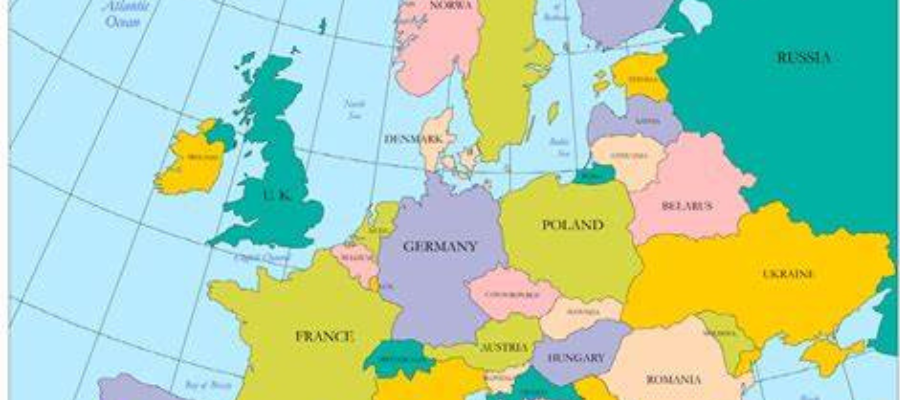Sweden versus the Netherlands: Where Would You Study Your Master’s?


When it comes to pursuing a Master’s abroad, Europe is a preferred option. Among the numerous nations where international students find destination comfort, Sweden and the Netherlands stand out as two of the most sought-after. Both have high standard education, internationally reputed universities, and a cosmopolitan international student environment. But if you can’t decide between the two, how do you choose the nation that best fits you?
This blog dissects the most important factors you need to take into account before deciding between Sweden and the Netherlands for your Master’s. We’ll delve into the academic culture, lifestyle, tuition fees, post-study work rights, and more—so you can make a decision that you’re confident with.
1. Academic Excellence and Teaching Style
Sweden
Swedish institutions such as Lund University, KTH Royal Institute of Technology, and Uppsala University are among the top universities globally. Sweden boasts an innovation-led, student-focused, and research-intensive education system. Be prepared for a lot of independent study, teamwork, and project-based exams.
Sweden also places a strong focus on critical thinking, free discussion, and equality in the classroom. Professors frequently collaborate with students, and the instructional style is less authoritarian than in the majority of nations.
Netherlands
The Netherlands has some of the world’s best institutions, including Delft University of Technology, University of Amsterdam, and Erasmus University Rotterdam. Dutch universities have a formal and demanding style of academics, especially in areas such as economics, engineering, and social sciences.
Most Master’s degrees are conducted in English (more than 2,000!), and Dutch instruction combines traditional lectures with case studies, practical labs, and fieldwork. The nation excels in business, sustainability, and technology.
Verdict: Both nations provide excellent education, but Sweden prioritizes innovation and research, while the Netherlands prefers practical application and organization.
2. Language and Accessibility
Sweden
Nearly all Swedes are fluent in English, and most Master’s courses are taught in English. It is possible to live and work without learning Swedish, even though learning some basics will enhance your everyday life and career prospects.
Netherlands
The Netherlands boasts the most English-taught programs in mainland Europe, and close to 95% of Dutch citizens speak English. Life as an international student is straightforward, and there’s no obligation to study Dutch unless you wish to.
Verdict: It’s a tie—both nations are highly English-friendly.
3. Tuition Fees and Scholarships
Sweden
Swedish universities provide free education to EU/EEA students, while international (non-EU/EEA) students have to pay between €8,000 and €20,000 annually depending on the program.
Sweden provides some scholarships such as:
- Swedish Institute Scholarships
- University-specific scholarships
But opportunities are limited, and there is tough competition for international students.
Netherlands
International student tuition in the Netherlands varies from €10,000 to €18,000 annually, depending on the institution and course. EU/EEA students pay significantly less—approximately €2,530 annually.
Scholarships available are:
- Holland Scholarship
- Erasmus Mundus Joint Master’s
- University merit-based awards
The Netherlands has more varied funding sources available to international students than Sweden.
Verdict: Netherlands might have a slight advantage because of wider scholarship opportunities and competitive tuition costs.
4. Cost of Living
Sweden
Sweden is said to be among the costliest countries in Europe. Plan on spending somewhere between €900–€1,200 a month, depending on the city. Stockholm and Gothenburg are especially costly.
Accommodation, food, and public transport can be very expensive, but student discounts and subsidized health insurance alleviate.
Netherlands
The cost of living in the Netherlands tends to be lower, ranging between €800–€1,100 monthly. Amsterdam is costly, yet Eindhoven or Groningen are more affordable.
Public transport is well-organized, and most students use bicycles for regular commuting—saving money and time as well.
Verdict: The Netherlands is the winner in terms of affordability.
5. Student Life and Culture
Sweden
Swedish cities are clean, secure, and structured. Student life tends to revolve around “student nations”, which host cultural events, parties, and clubs. The surroundings promote a balance between work and life, with ample nature, hiking, and peaceful environments.
The long winter and low sun in some parts of the country can be a problem for students from sunny places.
Netherlands
The Netherlands provides a dynamic student life, particularly in universities such as Leiden, Utrecht, and Amsterdam. There are cafes, museums, nightclubs, and cultural activities students can enjoy. The Dutch tend to be blunt, sociable, and very international-minded.
Weather is softer compared to Sweden but still Gray and rainy on some days.
Verdict: The Netherlands has more active, city-based student life, but Sweden is good for students preferring peace, calm, and the outdoors.
6. Work Opportunities During and After Study
Sweden
International students in Sweden are allowed to work freely during study. Nonetheless, it can be challenging to find part-time work, particularly if you don’t know Swedish.
Upon graduation, you can apply for a 12-month residence permit to search for employment or business. Once you get employed, you can switch to a work permit.
Sweden has international giants such as Spotify, IKEA, and Ericsson—perfect for technology, business, and design students.
Netherlands
Non-EU students in the Netherlands can work 16 hours a week during the academic year and full-time over summer—with a work permit. Employments can necessitate at least basic language skills in Dutch, particularly outside of major cities.
The Netherlands provides a one-year “Orientation Year” visa for graduates, enabling you to remain and look for a job. The nation is the center of international business, finance, logistics, and creative industries.
Verdict: Post-study work in the Netherlands has an edge with its Orientation Year visa and global job market.
7. Long-Term Career and Residency Options
Sweden
Once you have a job, you can apply for a work permit and subsequently a permanent residence permit. After four years of lawful residence, you can apply for permanent residence, subject to meeting income and employment requirements.
Sweden has an increasing demand for global talent in IT, engineering, and healthcare, and it is a good option for long-term migration.
Netherlands
The Netherlands has a clear route from Orientation Year → Highly Skilled Migrant Visa → Permanent Residency. After five years of uninterrupted stay, you are eligible to apply for a permanent residence or Dutch nationality (with some limitations).
Industries such as tech, AI, agriculture, and logistics are booming and always in search of talented foreign professionals.
Verdict: Both nations have feasible routes to long-term residence, but the Netherlands presents more organized routes for employment-seeking graduates.
Final Verdict: Sweden or the Netherlands?
| Priority | Winner |
|---|---|
| Academic Freedom & Innovation | Sweden |
| Practical Learning & Career Focus | Netherlands |
| Cost of Living | Netherlands |
| Scholarships | Netherlands |
| Nature & Quality of Life | Sweden |
| Student Life & City Vibe | Netherlands |
| Post-Study Work Opportunities | Netherlands |
So, which is better?
Choose Sweden if you prefer research-focused education, value sustainability, enjoy quiet surroundings, and want to immerse yourself in a unique Scandinavian culture.
Choose the Netherlands if you want a vibrant student life, strong job market access, practical education, and better affordability.
There is no cookie-cutter solution when deciding between Sweden and the Netherlands. Both are amazing in their own respects and provide top-of-the-world opportunities for Master’s students.
The correct choice is based on your personality, course of study, career aspirations, and lifestyle choices. Research, consult with alumni, and consider your options carefully. Wherever you end up, the experience of studying abroad will change your outlook and lead to a global future.
Contact Aar Consultancy for more information!
We provide 360° Solution for your Education Needs. Contact us






